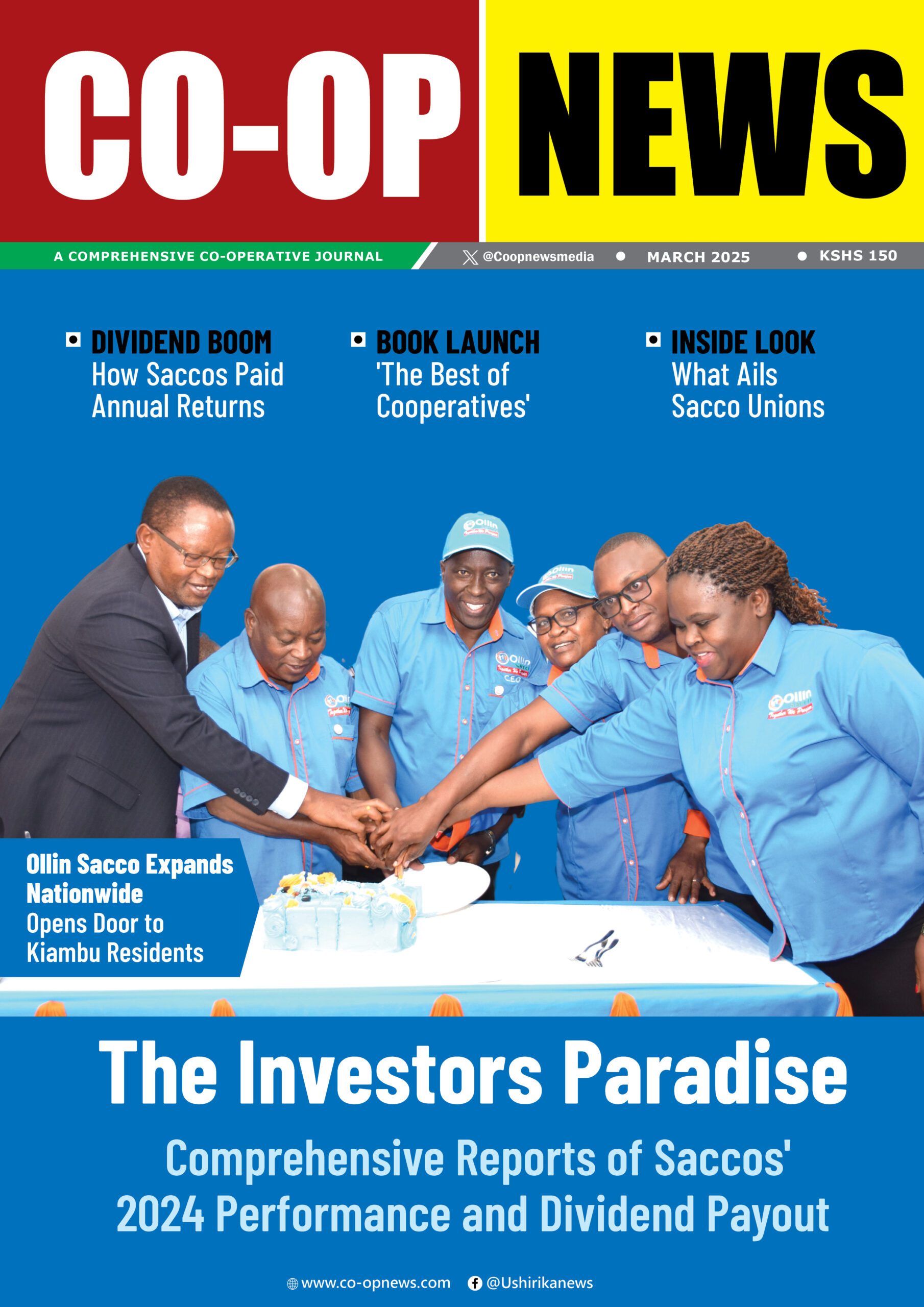Co-operative movement success is dependent on good governance
The Co-operative Movement has continued to thrive with the Government committed to formulating all relevant policies that will take it to the next level. The economic environment keeps changing, and the policy reviews must be in tandem with the changing times. The Government is cognizant of the fluid space co-operatives are operating in and therefore continues to enhance regulations and supervision to ensure stability.
Co-operatives, members and stakeholders must remain united to promote sustainable and competitive co-operative societies, ultimately realizing the desired impact of industrialization and better social and economic development.
Co-operatives are the easiest and most effective avenues to unlock more economic opportunities for the benefit of their members and the country at large.
For this reason, members and co-operative leaders should be vigilant in detecting challenges that befall the sector, particularly those arising from technology.
Co-operatives must invest in education and training to enhance members’ understanding of the principles of personal finance. It is through co-operatives that members receive a platform for making collective investments.
Kenya has made great strides in economic progression courtesy of co-operatives. They have contributed to employment creation.
To maintain high growth, co-operatives need to leverage information and communication technology but take cautionary measures to combat inherent threats such as fraud and other related cybercrimes that negatively affect financial institutions.
I call upon all co-operatives to continuously review their internal controls, risk management, and systems audits alongside adopting appropriate ICT systems. I also urge the boards and management teams to continually re-engineer products and services to meet members’ needs and preferences, develop strategies to increase savings by members, not only for loan advancement but also as safeguard to their old age and promote co-operative education and information on basic co-operative principles and values – there is no success without a successor.
Co-operatives offer services in all sectors of our economy, cutting across financial services, housing, insurance, transport, hospitality and agriculture, among others.
In particular, Savings and Credit Co-operative Societies (Saccos) have mobilized savings among low-income households with limited access to mainstream banking. As leaders, you must diversify avenues for savings mobilization and developing new financial products.
This is the only way to improve the intermediation between savings and investments. Saccos uniqueness is derived from the special relationship with its clients (members), who also happen to be the owners.
I urge Saccos to expand operations where possible for increased incomes, including outreaching all potential members across the country.
The success of Saccos and the co-operative movement at large depend on good governance. Therefore, we must remain vigilant and not lose focus on developing necessary management competencies, innovation, openness to change, sound financial management and responsiveness to members’ needs and expectations.
The co-operative movement as a whole command an asset base of Ksh1.3 trillion and Ksh885 billion in savings and deposits. The loan portfolio currently exceeds Ksh860 billion. The sector also contributes about 31% of the national savings in the country.
The importance of co-operatives in our socio-economic development means that the Government will continue creating an enabling environment for the sector’s sustainability, growth and development. This includes the development of an appropriate legal, policy and institutional framework that promotes a savings culture, prudent financial management, and good governance for the realization of full potential.
So far, the State Department for Co-operatives development has undertaken major reforms that include: the operationalization of non-deposit taking Sacco regulations, which has brought more Saccos under the supervision of SASRA and the establishment of Deposit Guarantee Fund (DGF), allowing members’ compensation in the event a Sacco collapses.
The department has also supported the establishment of a Central Liquidity Facility (CLF) and Shared Services Platform to enable inter-borrowing among Saccos, thus reducing operational costs.
The review of the Co-operatives Act and establishment of the Sacco Societies Fraud Investigation Unit that is domiciled at SASRA to combat misappropriation of members’ funds are other major steps in strengthening the sector.
All these are meant to increase members’ confidence and trust in co-operatives. I must thank co-operative leadership, management, and membership for ensuring success in the sector. Long Live the Co-operative Movement.


By David Obonyo, Commissioner for Co-operative Development





